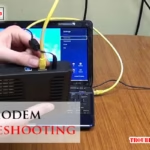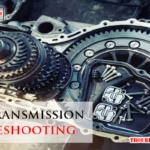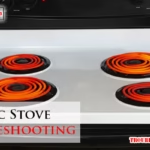If your Kohler engine is not starting, check if the ignition coil is defective and replace it if necessary. Make sure the spark plug is working properly before replacing the ignition coil.
You can test the ignition coil with an ignition coil tester to confirm if it is faulty. It is important to troubleshoot engine problems systematically and think like a mechanic. In this guide, we will provide you with step-by-step instructions to diagnose and solve common issues with your Kohler engine.
Whether it’s a problem with the carburetor, compression, ignition coil, or voltage regulator, our troubleshooting guide will help you identify and fix the issue at home.
Section 1: Starting Issues
One of the most common issues that Kohler engine owners face is starting problems. If your engine is having trouble starting, there are a few key areas to check and troubleshoot. In this section, we will explore the different starting issues and provide step-by-step instructions to help you resolve them quickly and effectively.
The starter will not engage.
If you turn the key or press the start button, but the starter does not engage, there may be a problem with the starter motor connections. To check the connections, follow these steps:
- First, ensure that the engine is turned off and the key is removed from the ignition.
- Open the hood and locate the starter motor.
- Inspect the connections to ensure they are secure and free from corrosion.
- If you notice any loose or corroded connections, disconnect the battery and clean the connectors using a wire brush.
- Reconnect the battery and test the starter to see if it engages properly.
Test The Starter Solenoid
If the starter motor connections are intact and the starter still does not engage, the issue may lie with the starter solenoid. Here’s how to test the solenoid:
- Disconnect the battery to ensure safety.
- Locate the solenoid, which is usually mounted near the starter motor.
- Using a multimeter set to the continuity or resistance function, test the wiring connections on the solenoid.
- If there is no continuity or resistance, the solenoid may be faulty and need to be replaced.
Inspect And Replace The Starter Gear If Necessary
If the starter motor and solenoid are both functioning properly, but the engine still does not start, the issue could be with the starter gear. To inspect the gear and replace it if needed, follow these steps:
- Disconnect the battery and locate the starter gear.
- Inspect the gear for any signs of damage, such as worn or missing teeth.
- If the gear appears to be damaged, remove it and replace it with a new one.
- Reconnect the battery and test the engine to see if it starts.
The engine did not start.
If the engine does not start at all, there are a few potential causes you should investigate:
- Check the spark plug. Ensure that the spark plug is in good condition and properly connected. If necessary, clean or replace the spark plug.
- Test the ignition coil: If the spark plug is working properly but the engine still does not start, test the ignition coil using an ignition coil tester. If the coil is faulty, replace it.
- Inspect the fuel system: Check the fuel tank to ensure it has an adequate amount of fuel. Additionally, inspect the fuel lines and fuel filter for any clogs or damage. Clear any obstructions and replace the filter if necessary.
Note: It’s important to remember that troubleshooting starting issues can be complex, and it may be best to consult a professional if you are unsure or uncomfortable performing these steps yourself. A qualified technician can diagnose and repair any issues with your Kohler engine.
By following these troubleshooting steps, you can easily identify and resolve starting issues with your Kohler engine. Stay tuned for the next section of our Kohler Engine Troubleshooting Guide, where we will discuss other common problems and their solutions.
Section 2: Fuel-Related Issues
When it comes to troubleshooting your Kohler engine, fuel-related issues can often be a common source of problems. In this section, we will discuss some of the key fuel-related issues that you may encounter when dealing with a Kohler engine.
Engine Runs Rough Or Stalls
If your engine is running rough or stalling, it could be due to several fuel-related issues. One of the first things to check is the carburetor for any dirt or debris that may be clogging it up. A dirty or blocked carburetor can restrict the proper flow of fuel and cause the engine to run poorly.
Check The Carburetor For Dirt And Debris
To check the carburetor, you will need to remove it from the engine and inspect it for any signs of dirt or debris. If you notice any buildup, carefully clean the carburetor using a carburetor cleaner. Be sure to follow the manufacturer’s instructions and use caution when handling chemicals.
Clean Or Replace The Fuel Filter
In addition to the carburetor, a dirty or clogged fuel filter can also cause fuel flow issues. Inspect the fuel filter and clean it if necessary. If the filter is damaged or excessively dirty, it may be best to replace it with a new one to ensure proper fuel flow to the engine.
Inspect The Fuel Pump For Any Issues
The fuel pump is responsible for delivering fuel from the tank to the engine. If there are any issues with the fuel pump, it can result in poor fuel flow and engine performance. Inspect the fuel pump for any signs of damage or malfunction, and replace it if necessary.
Fuel Leaks
Fuel leaks can be a serious safety hazard and should be addressed immediately. Check for loose or damaged fuel lines that may be causing the leak. Inspect the fuel tank for any cracks or leaks and replace it if necessary. Tighten or replace any loose or damaged fuel fittings to ensure a secure connection.
Check For Loose Or Damaged Fuel Lines
Inspect all fuel lines for any signs of damage or looseness. A loose or damaged fuel line can disrupt the proper flow of fuel and cause engine issues. If you notice any problems with the fuel lines, replace them with new ones to ensure a secure and uninterrupted fuel supply.
Inspect The Fuel Tank For Cracks Or Leaks
A cracked or leaking fuel tank can lead to fuel leaks and engine performance issues. Carefully inspect the fuel tank for any signs of damage and replace it if necessary. It is important to have a secure and leak-free fuel tank to ensure the proper functioning of your Kohler engine.
Tighten Or Replace Fuel Fittings
Lastly, check all fuel fittings for tightness and security. Loose or damaged fuel fittings can cause fuel leaks and disrupt the flow of fuel to the engine. Tighten or replace any loose or damaged fittings to ensure a proper and secure connection.
Section 3: Electrical Issues
One of the most common issues with Kohler engines is electrical problems. These problems can cause engine misfires or prevent the battery from charging properly. In this section, we will cover the troubleshooting steps for these electrical issues and provide solutions to get your engine running smoothly again.
Engine Misfires
- Check the spark plug wires for damage. Inspect the spark plug wires for any cracks, breaks, or loose connections. Replace any damaged wires.
- Inspect and clean the spark plugs. Remove the spark plugs and check for any signs of fouling or deposits. Clean the spark plugs using a wire brush and reinsert them.
- Test the ignition module: Use an ignition module tester to check the functionality of the ignition module. If it is not working properly, replace it.
Battery Not Charging
- Check the voltage regulator. Inspect the voltage regulator for any signs of damage or loose connections. Replace it if necessary.
- Inspect the alternator belt. Ensure that the alternator belt is properly tensioned and free from any wear or damage. Adjust or replace if needed.
- Test the battery for proper charging: Use a battery tester to check the voltage and charging capacity of the battery. If it is not charging properly, replace the battery.
Section 4: Other Common Problems
Overheating
When your Kohler engine is experiencing overheating issues, there are a few troubleshooting steps you can take:
- Check the cooling system for leaks or blockages. Ensure that all hoses and connections are secure and free from
any obstructions or damage. - Clean the radiator and fins. Over time, dirt and debris can accumulate, reducing the heat dissipation
capacity of these components. Gently remove any dirt or debris using compressed air or a soft brush. - Check the thermostat for proper function. A faulty thermostat can cause the engine to overheat. Test the
thermostat by immersing it in boiling water and monitoring if it opens at the specified temperature.
Low Power Output
If your Kohler engine is experiencing low power output, follow these troubleshooting steps:
- Inspect and clean the air filter. A dirty air filter can restrict airflow to the engine, resulting in reduced
power output. Remove the filter and check for any dirt or debris. If necessary, clean or replace it. - Check the exhaust system for blockages. Obstructions in the exhaust system can prevent proper exhaust gas flow
and reduce engine performance. Inspect the exhaust pipe and muffler for any blockages and remove them if
found. - Test the compression of the engine. Low compression can indicate worn-out piston rings or valves, leading to
reduced power output. Use a compression tester to measure the compression in each cylinder and compare the
results with the manufacturer’s specifications.
By following these troubleshooting steps for common problems like overheating and low power output, you can address issues with your Kohler engine and ensure it continues to run smoothly.
Frequently Asked Questions
What Would Cause A Kohler Engine Not To Start?
A defective ignition coil can cause a Kohler engine not to start. Before replacing the ignition coil, make sure the spark plug is working properly. Test the ignition coil with an ignition coil tester and replace it if necessary.
How Do You Adjust The Governor On A Single Cylinder Kohler Engine?
To adjust the governor on a single-cylinder Kohler engine, follow these steps: 1. Locate the governor’s arm and loosen the nut holding it in place. 2. Rotate the arm clockwise to increase speed or counterclockwise to decrease speed. 3. Tighten the nut to secure the arm in the desired position. Make sure to consult the engine’s manual for specific instructions.
What Engines Are Being Recalled On Kohler?
Certain Kohler gasoline engines are being recalled due to the risk of fuel leaks and fires. Ensure your engine is not included in the recall to prevent potential hazards.
How Many Hours Is A Kohler Engine Good For?
A Kohler engine typically has a lifespan of around 2,000 to 2,500 hours.
Why Is My Kohler Engine Not Starting?
If your Kohler engine is not starting, it could be due to a defective ignition coil. Before replacing the ignition coil, check if the spark plug is working properly. If it is, use an ignition coil tester to test the coil.
If it is defective, replace it.
Conclusion
To troubleshoot your Kohler engine effectively, it’s important to approach it like a mechanic and follow a systematic problem-solving approach. Use our troubleshooting guide to diagnose and fix any performance issues you encounter with your Kohler engine. Remember to check for common problems like a defective ignition coil or spark plug before replacing any parts.
Don’t hesitate to refer to the Kohler Command Pro CS Series owner’s manual for additional support. Keep your engine running smoothly and efficiently with our helpful troubleshooting tips.







MY KOHLER WILL RUN FOR ABOUT 10 MINUTES AND CUT OFF MODEL 5E
Thank you for your comment. If your Kohler engine runs for about 10 minutes and then shuts off, it could be due to a few possible issues. Here’s a simple checklist to help you troubleshoot:
These steps may help, but if the problem continues, it might be best to consult a professional for a closer inspection.
I have the same problem I replaced ignition coils and now it won’t start at all????
If your engine stopped starting after replacing the ignition coils, the issue is usually related to installation or another ignition component. You can check a few things step by step.
If everything checks out and there is still no spark, testing the coil wiring and ignition switch with a multimeter is a good next step. This usually helps pinpoint what’s preventing the engine from starting.